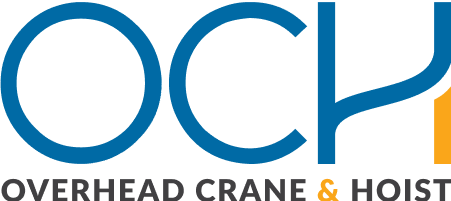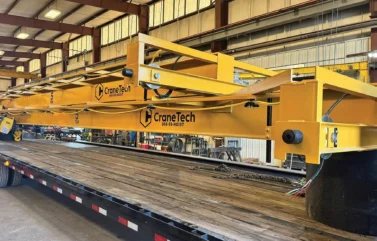
CraneTech, which provides crane installations, inspections, repairs and training for clients across the US with more than 30 offices and locations, has undergone a major transformation in the past few years, thanks largely to its young and dynamic CEO, Eric Factor.
The company was established in 2004, and since then has maintained an intense focus on delivering top-quality products, superior training, and high-level expertise to support its customers success. It has always prided itself on its dedication to safety, customer satisfaction and employee well-being, which it achieves thanks to a firm belief that people are the most important resource.
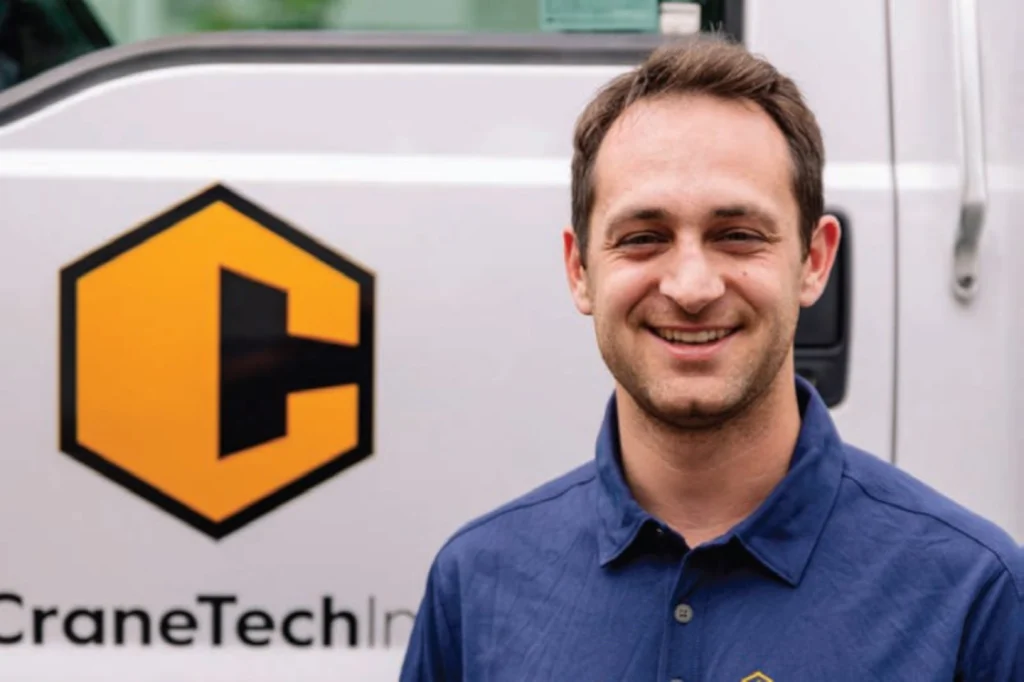
CraneTech’s transformation has come in the form of rapid growth, and it established a reputation as an acquisitive company, but not in the way some might expect. In an industry that continues to undergo consolidation, and which is attracting significant investment from private equity and other external investors, CraneTech has prioritised culture, skill set and people in its acquisitions.
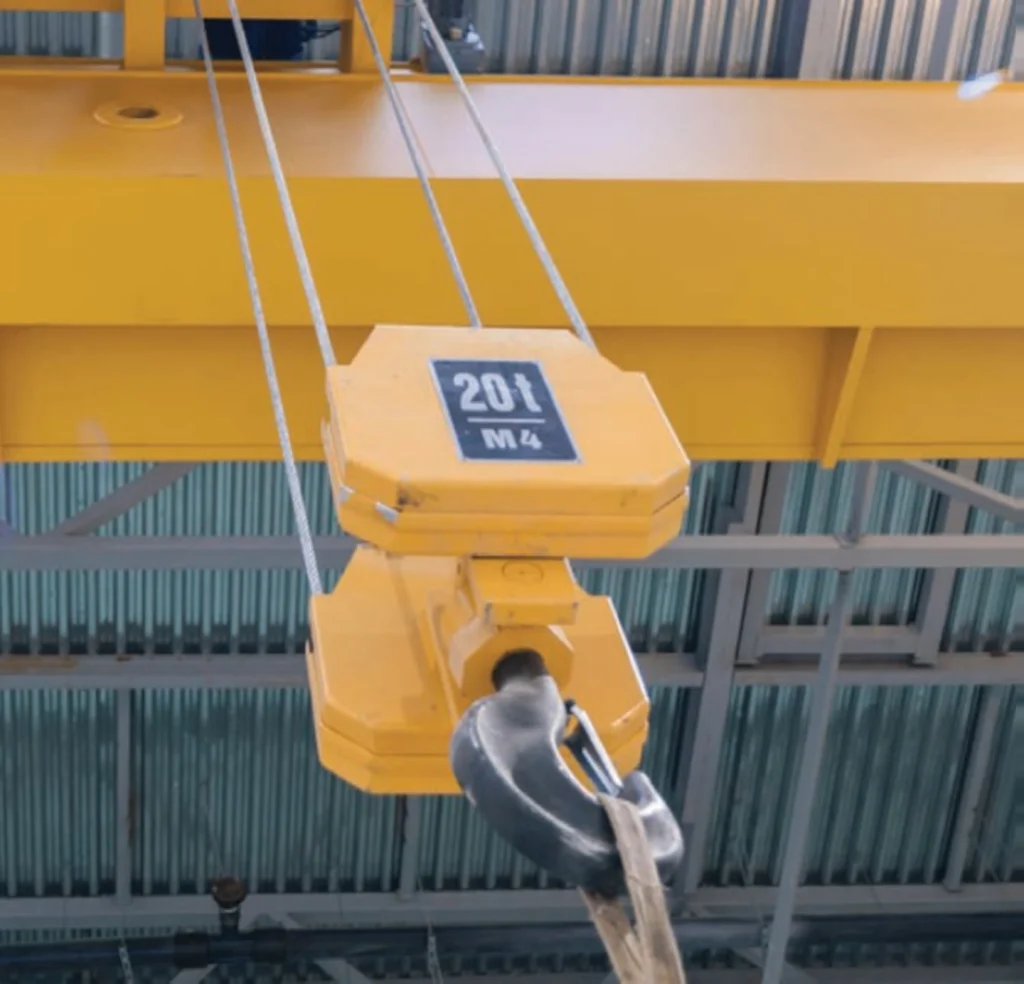
In late 2023, it bought Tulsa, Oklahomabased Ameracrane & Hoist, which itself had a history spanning more than two decades. The move added 25 dedicated professionals and a well-stocked parts department to the CraneTech family, and played a key part in the company’s expansion into the central US territory.
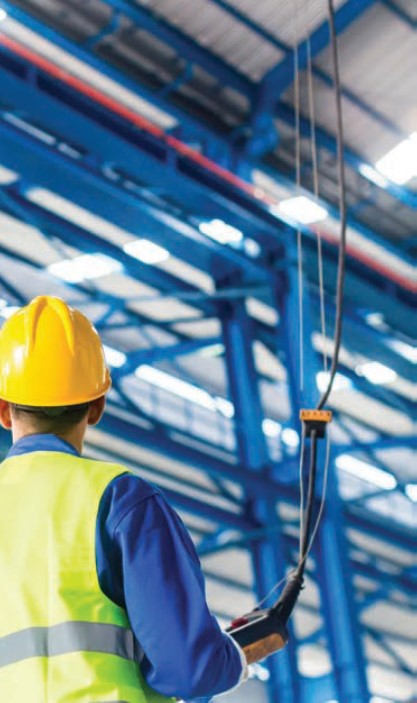
In 2024, CraneTech brought Twin City Crane & Hoist, based in Anthony, New Mexico, under its umbrella. The company that has serviced the El Paso, Texas market for many years solidified CraneTech’s footprint in the south west US, where it already has operations in Phoenix, Tucson, Albuquerque, Dallas and Houston.
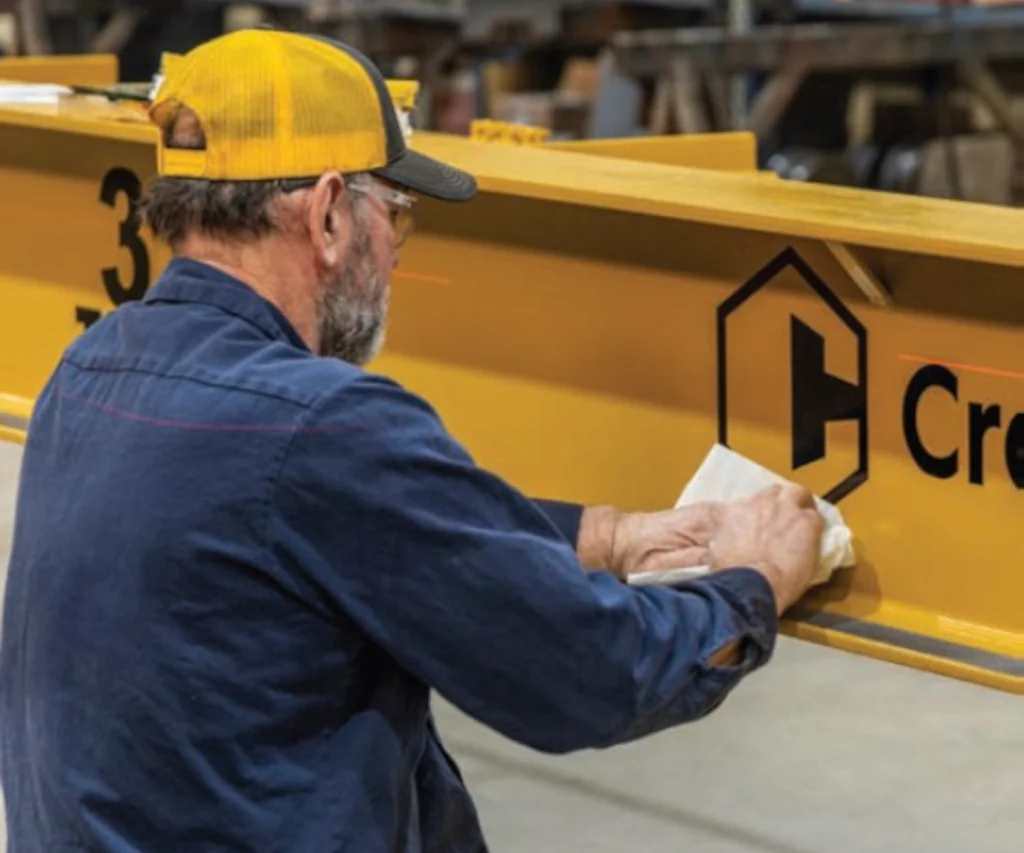
And those deals are just the tip of the iceberg, with 15 acquisitions having been completed in the past four years, and more currently in the pipeline. Driving this is Factor, along with friend and CFO Austin King. From the outside, their strategy may look similar to some other consolidators, but they insist their approach is very different. They seek to identify opportunities for owners who are super-focused on their people, and their targets are often much smaller than a private equity investor might seek.
Typically, a target will consist of the owner, a service manager and perhaps six technicians. Factor is not interested in taking on huge operations that have to be laboriously integrated into the broader business. The focus is on the employees and their skill set, with a view to expanding into markets where Factor feels the company can come in with a good head of steam.
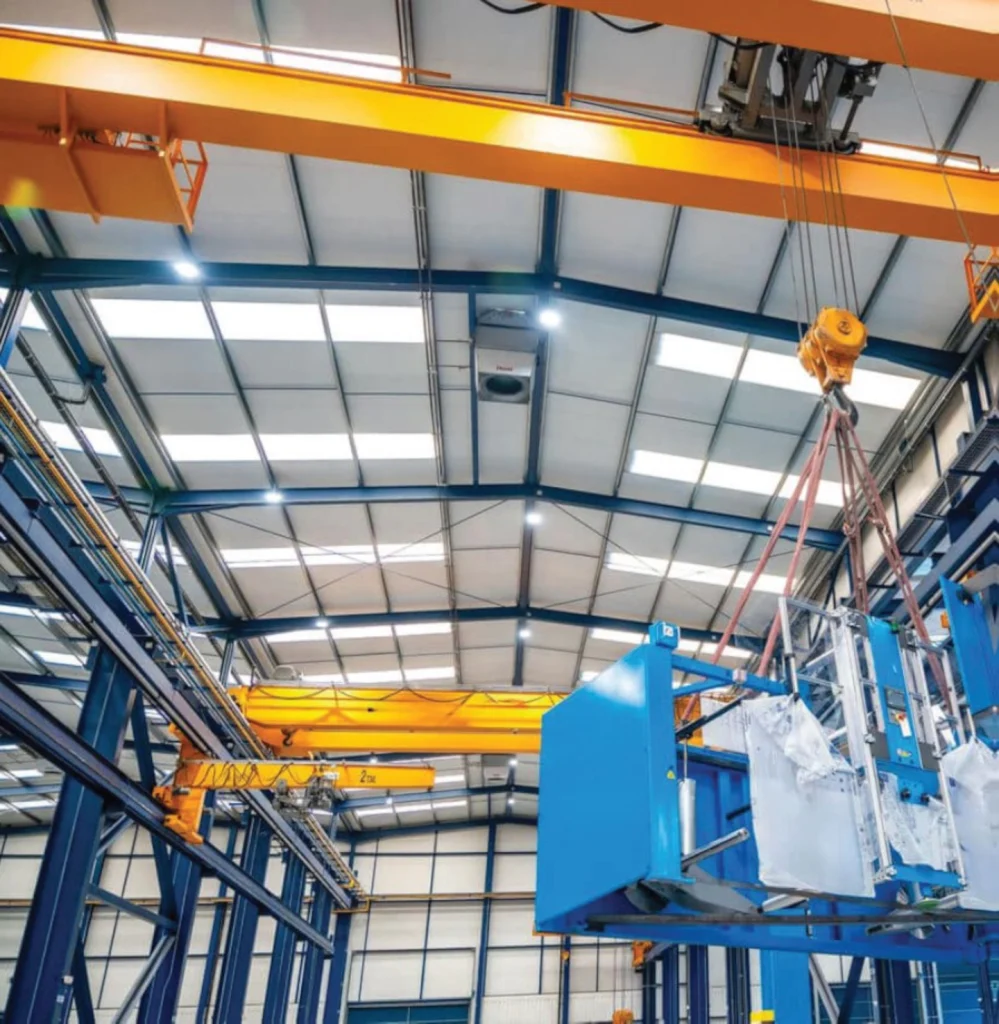
Whether through acquisition or organic growth, Factor is determined to further strengthen his company’s focus on its core values – safety, dependability, teamwork and humility.
What drives you as an industry leader?
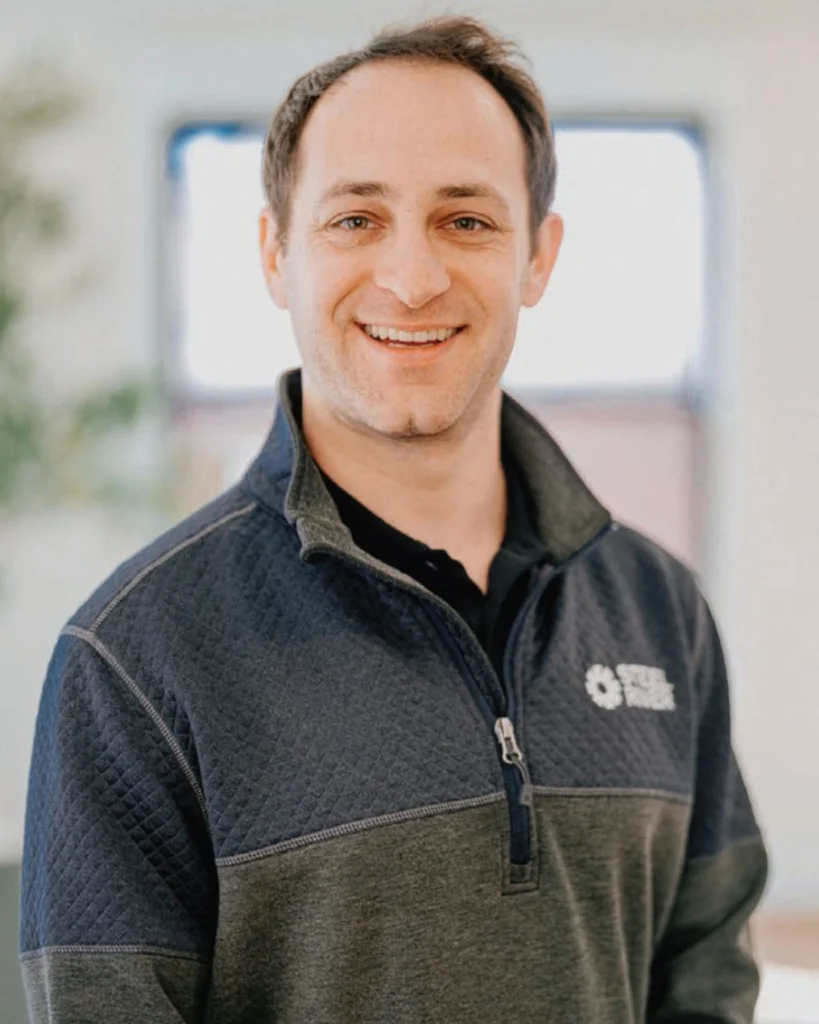
Eric Factor: First and foremost, an opportunity to build the safest company in the industry. Everything we do is built on our foundation of safety. We are also very long-term focused, and intensely passionate about our people. We are working to build a company that our employees are proud to call home for the rest of their careers.
What is your biggest business inspiration?
Our biggest inspiration comes from the P&H of the old days. Where people came first and teamwork drove success. What I hear from my employees and in conversations with technicians is that the old P&H was a business where technicians were treated well and highly compensated. It was the kind of place where people wanted to work.
We put the best people on the same team and we support them. We are always working to innovate and improve efficiency, but that is not our priority. The people side of the business is our priority, and we are laser-focused on technical talent, in which we believe we can corner the market.
We want to be the place where the best of the best want to work. That is my inspiration, along with Austin, my best friend first and business partner second. It’s pretty cool to be able to work with your best friend every day, and I think that permeates through our entire company culture.
What is your business philosophy?
Despite our exponential growth, our goal is not to become the biggest crane company. Our goal is to be the best crane company – defined by employee and customer satisfaction. At CraneTech, we have what we call our pyramid for long term reinvestment. The pyramid has four layers, and at its foundation is safety. Safety is the core of everything that we do.
The next layer is people – hiring the best people in the industry in putting them in the right seats. Third is operational excellence – using systems and processes to provide the most effective and efficient customer service in the industry.
Finally, the top of the pyramid is that, when we do all of these things right, then we will all make money. And when we make money, we reinvest back into the bottom of the pyramid. We have a no-dividends policy at CraneTech. Everything we make gets reinvested back into our team, and into further growth.
Why and how did you enter this business?
Austin and I had worked together right out of college. I had become familiar with the crane industry and thought it was fascinating. We like the trades – blue-collar businesses with highly skilled workers. I was working for a tech company in Boston and when Covid hit, and we were looking for new opportunities, we saw that the crane industry has some great regulatory tailwinds, and the experience Austin had gained in HVAC and plumbing meant he could appreciate the opportunity to focus on technicians.
We identified the industry as one that is resilient through economic cycles and ripe for disruption. We believe many companies in our space have forgotten what got it here – and that is people, especially technical people.
We started by cold calling business owners from the internet. We were lucky that a gentleman named Jim Stewart, the original founder of CraneTech, took our call. We were 26 years old at the time, and he gave us a chance. His belief in us is really what gave us the opportunity. Then we found some amazing investors – all families and individuals – who were crazy enough to help fund our vision.
There is massive domestic investment in US manufacturing, which began even before Trump took office and is accelerating now, and safety regulations are evolving. In the US, you have specifical inspection standards from OSHA, and some states have their own regulations. For instance, California now requires quarterly inspections. So that is providing the positive tailwinds in the industry.
Also, the private equity investment in the industry is unlocking talent that might once have been super-loyal. This freeing up of talent is what gives us the opportunity for growth. Although we have made a lot of acquisitions, the majority of growth is organic, and we have directly hired over 80% of our employees.
Can you tell us about your success stories?
Our biggest success has been in recruiting. The team we’ve built is unlike any I’ve ever seen. It is not just our prevalence of strong industry talent, but the density of such talent. From technicians to managers to leadership, sales and support teams, I would put our team up against any team in any industry.
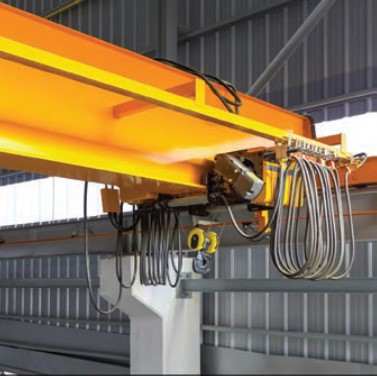
Can you tell us about your failures and how you overcame challenges?
We’ve made many mistakes along the way and there has been no shortage of challenges. As an example, we have been working very hard to upgrade our systems along the way. We were just 18 employees four years ago. Today, we’re almost 400.
The upgrading of systems is incremental and it is still happening. We are coming off the back of a big ERP migration. But most of the businesses we have purchased are small, typically an owner and a small team of technicians. If a private equity fund is making a purchase in this sector it will start by buying a big company as a platform.
We, however, build from the ground up. Our largest acquisition had only a few more than 20 employees, so we have had to work hard to implement systems that are helpful as you scale.
It is a matter of prioritising, and that is what we have learnt along the way. We learn something from every acquisition, and usually that lesson reinforces our strategy. We have learnt that the most important part of the diligence process is the people and understanding what makes them tick. We have to identify who holds the customer relationships, and who can drive further growth. We are always trying to find opportunities where the owners are really invested in their people.
What do you like about this industry?
I’ve spoken a lot about our people – and that is first. But the customers are doing some unbelievable things. My favourite thing to do is accompany technicians to job sites and get a glimpse into the industries that are truly the backbone of our country. We service cranes that lift everything from rocket ships to nuclear reactors.
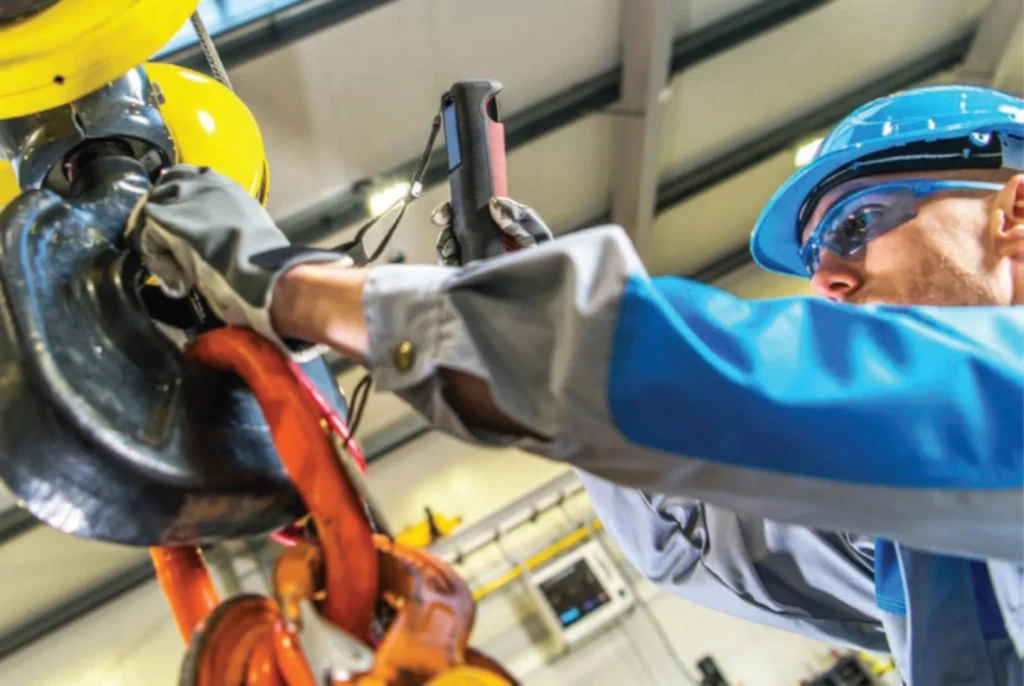
There are some aspects of this industry that are fascinating and some that are annoying. It is a very challenging sector, especially for our employees. It is not rainbows and cupcakes. Our technicians work their asses off. They are frequently required to travel, and they can often be called away from their families in the middle of the night for an emergency. But they do get to feel like the hero when they fix a crane that is down at a customer facility where everyone’s livelihood depends on it.
Is there anything you dislike about this industry or any changes you would like to see implemented?
I would like to see a bigger emphasis on safety and training. And we need to help improve our customers’ safety. This is why we invested in the North American Training Bureau, a leading national crane school from which we are developing further curriculum for our teams and customers.
Safety and training are not at the level of prioritisation that they need to be. There has been some work on safety throughout the industry, but it should be priority number one. Right now it’s number two or three on the agenda. That is why we have made large investments in both.
We have built a safety programme and a safety culture from scratch. That is partly because when we talk to our people they are always asking for training. That is why we bought the training school and why we are building both a technical curriculum and a safety curriculum to support our technicians.
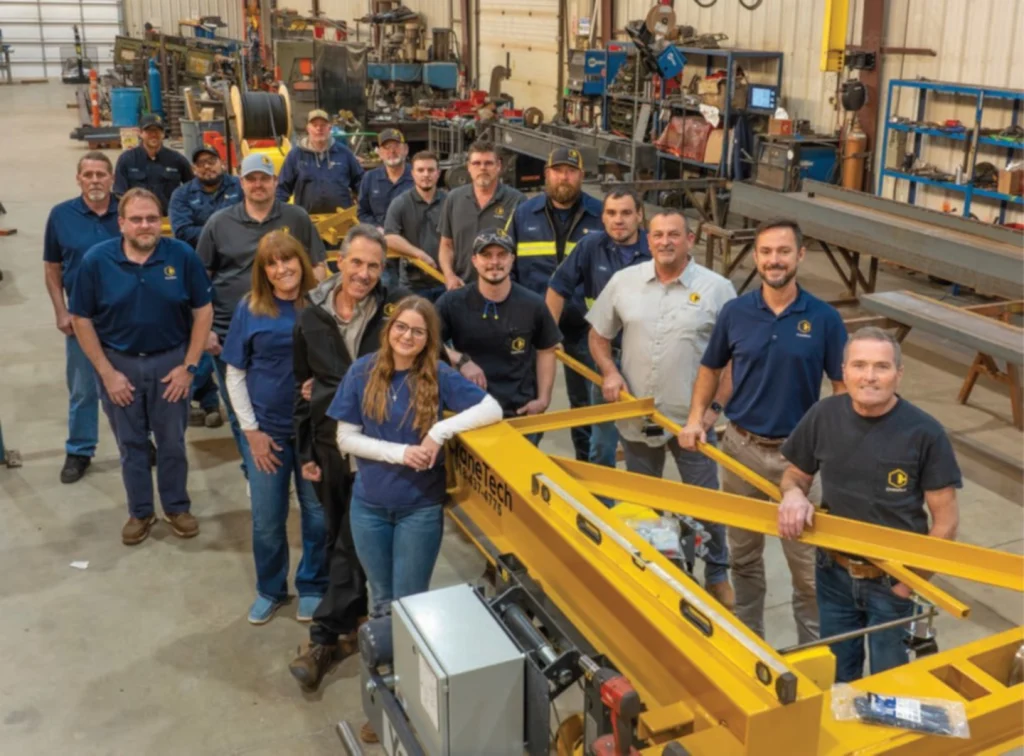
What makes your company unique?
Our technician-first approach, and the culture we have built. We take our cultural values very seriously, and it was our technicians themselves who defined them. They are safety, teamwork, dependability and humility.
Every year one technician in every branch is voted by their peers to attend an all-expense paid retreat. It’s a big reward and usually very fun – last year we took everyone night-vision hog hunting. But we also use it as another opportunity to get our technicians fingerprints on our fabric as a company.
What is your view on the future of the overhead cranes/lifting industry?
The biggest trend is consolidation, and we think this is only going to increase over the next five years. We expect many of the larger businesses to start merging with each other, as larger and larger private equity groups start investing in the industry. Meanwhile, the winners will be the companies that stay laser-focused on their people and their technical talent. While we are acquisitive as well, it is the people that are our focus. We only acquire companies where it is clear that the owner’s priority is truly their team.
Company profile
CraneTech is a leading full-service American crane company with more than 30 locations across the US. Over the past four years, CraneTech has grown from a small mom and pop with 18 employees to nearly 400 today with industry-leading technical talent.
It provides crane installations, new equipment, modernisations, inspections and repairs for clients across the US with 15 offices. Established in 2004, the company has been committed to offering top-quality products, superior training and expert support to ensure the success of its customers. It prides itself on its dedication to safety, customer satisfaction and employee well-being.
The company’s mission is to constantly exceed our customers’ expectations by providing them with the highest quality service and support, and its core values are safety, honour, integrity and pride in their work, which comes from a deep understanding of the needs of its customers.
Personal life
For Eric, family always comes first, and he believes he and his colleagues are building an organisation that feels like family but demands the most out of each other, just like any high-performing team. Their approach is to work very hard and have a positive impact on the communities in which they operate.
Even from a very young age, Eric always wanted to be a CEO. He was the kid trying to sell pens door-to-door in kindergarten, and he feels very fortunate to have the opportunity to realise this dream, especially this early in his career.
